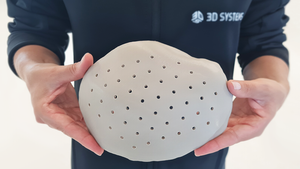The agreement reportedly establishes clear-cut guidelines preserving the security of patents and other intellectual property, which is an enormous victory for both manufacturers and consumers, said Omix-ADA (Suwanee, GA).
September 21, 2017

 On Nov. 7, 2016, I wrote an article about how trade shows are excellent places to find your knocked-off products. The company I wrote about had called in the Feds at the Specialty Equipment Market Association (SEMA) show in Las Vegas when it spotted a vendor selling counterfeit products belonging to Omix-ADA, a Suwanee, GA–based manufacturer of high-quality Jeep, truck and off-road accessories. Based on the merits of the claim, U.S. Marshalls executed search and seizure operations at the SEMA venue, as well as the concurrent AAPEX show happening nearby, and placed a temporary halt to the alleged illegal activity.
On Nov. 7, 2016, I wrote an article about how trade shows are excellent places to find your knocked-off products. The company I wrote about had called in the Feds at the Specialty Equipment Market Association (SEMA) show in Las Vegas when it spotted a vendor selling counterfeit products belonging to Omix-ADA, a Suwanee, GA–based manufacturer of high-quality Jeep, truck and off-road accessories. Based on the merits of the claim, U.S. Marshalls executed search and seizure operations at the SEMA venue, as well as the concurrent AAPEX show happening nearby, and placed a temporary halt to the alleged illegal activity.
Today, in a release from the company, Omix-ADA announced that a decision has been handed down in the case of several off-shore companies accused of patent and trademark infringement, as well as participating in the manufacture of counterfeit products.
Based on the November 2016 complaints filed in a U.S. district court, Omix-ADA/Rugged Ridge claimed numerous instances of infringement on trademarks and copyrights, as well as several instances of patent violations. The companies who were found to be in violation but agreed to abide by the terms of a settlement were identified as Changzhou Jiulong Auto Lamps Factory and Sanmak Lighting Co. Ltd.
While the terms of the settlement were not made public, the agreement established clear-cut guidelines preserving the security of patents and other intellectual property, which is an enormous victory for both manufacturers and consumers, said Omix-ADA.
In an injunction handed down by the district court, companies who had not voluntarily agreed to the terms were ordered to immediately cease manufacturing, importing and selling the infringing products in the United States. In addition, all marketing materials, catalogs and product inventory were to be destroyed and all tooling was to be surrendered immediately. The companies affected by the injunction were identified as Guangzhou Vcan Electronic Technology Co. Ltd., Shenzhen Unisun Technology Co. Ltd. and Unity 4WD Accessories Co. Ltd.
In a statement by Omix-ADA, the company said that “while this triumph of the justice system does not undo any damage already done, it does help establish a significant precedent to uphold across the automotive aftermarket in the future. With counterfeiting and infringement becoming a widespread problem throughout the industry, aggressively combating any occurrences through the proper legal channels makes it very clear that such actions will not be tolerated.”
That all sounds good, but experience tells me this won’t be the end of the story for Omix-ADA. It’s a well-known fact that these Chinese companies are difficult to trace because they merely change the company name, and sometimes even the location, and get back in business. Even ordering that the tooling be surrendered won’t do much good—they’ve probably already made replacement tooling.
A story I wrote about counterfeit Chi hair products (hair dryers, irons and other haircare products) was revealing in that Farouk Shami, the owner of Chi, told me that as fast as he was able to shut down one counterfeiter through the legal system, another would pop up under a different name.
It’s like playing Whack-a-Mole at the county fair.
A story by AP business writer Joe McDonald noted that China’s “crackdown on violations of patents and trade secrets” is an attempt by the Chinese government to “mollify foreign companies ahead of a visit to Beijing by U.S. President Donald Trump.” While the so-called crackdown might provide Beijing with “diplomatic ammunition” when responding to increasing U.S. and European trade complaints, “it fails to address what foreign companies say are bigger problems with intellectual property protection,” said the AP story.
"The four-month campaign will attack theft of foreign trade secrets and violations of patents, copyrights and trademarks, according to a Ministry of Commerce announcement. It says the goal is to ‘increase foreign investment.’”
It’s obvious that China’s government is finally realizing that IP theft, counterfeiting of high-end consumer products and automotive aftermarket parts and accessories is giving the country a bad name. Companies that might be considering manufacturing in China are having second thoughts about the true costs involved, including the cost of recalls of counterfeit products.
The AP article noted that in a survey this year, “the American Chamber of Commerce in China said the share of its member companies that cited China as a global priority dropped to 56% from a peak of 78% in 2012.”
As more global companies find that the cost of manufacturing in China far outweighs profitability because of counterfeiting, IP theft and product recalls that tarnish the reputations of good OEMs, they will resist going to China.
That’s a good move for everyone!
About the Author(s)
You May Also Like




